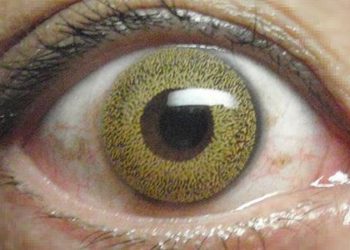USPSTF recommends use of risk-reducing medications for breast cancer
Image: PD
1. Based on a review of recent evidence, the U.S.Preventive Service Task Force (USPSTF) has released a statement recommending the use of selective estrogen receptor modulators (SERMs) in women age 35 or older who are at increased risk for breast cancer and at low risk for medication adverse events such as thromboembolic disease (Level B recommendation)
2. The USPSTF recommends against the routine use of these medications for risk reduction of primary breast cancer in women who are not at increased risk for breast cancer (Level D recommendation)
Evidence Rating Level: 2 (Good)
Study Rundown: Breast cancer is the most common non-skin cancer in women. An estimated 1 in 8 women will be diagnosed with one form of the disease during her lifetime. While the use of screening tools has lead to earlier detection of breast cancer, it does not prevent development of the disease. Therefore, identifying effective risk-reducing interventions remains an important step towards lowering disease incidence. Tamoxifen and raloxifene are two SERMs which have been shown to reduce overall risk for estrogen receptor (ER)-positive breast cancer, and are currently FDA-approved for this indication in certain disease subgroups. The USPSTF performed a systematic review of large clinical trials investigating the effects of these medications on breast cancer outcomes. They concluded with moderate certainty that, in women age 35 or older with no prior diagnosis of breast lesions but an increased risk for breast cancer, tamoxifen and raloxifene provide a moderate net benefit in reducing the incidence of invasive breast cancer. In contrast, the USPSTF discourages the use of these risk-reducing medications in women who have a low risk of breast cancer given the unfavorable cost to benefit ratio. Adverse effects of the SERMs include increased risk of venous thromboembolic (VTE) events and increased vasomotor events (i.e. hot flashes). Furthermore, there was increased risk of endometrial cancer associated with tamoxifen users only.
Click to read the study, published today in the Annals of Internal Medicine
In-Depth [systematic review]: The USPSTF conducted a systematic review of the evidence regarding the effectiveness of tamoxifen and raloxifene in reducing the risk for breast cancer, as well as the associated adverse events. They reviewed large randomized clinical trials of breast cancer outcomes among women without pre-existing breast cancer, including those comparing tamoxifen and raloxifene head-to-head as well as placebo-controlled trials of each medication. All of the trials were multicenter and met criteria for fair or good quality. Patients were eligible if they had a 5-year predicted breast cancer risk of at least 1.66%, though some studies used a higher cutoff. Follow-up after enrollment ranged from 6 to 13 years.
In the placebo-controlled trials, tamoxifen and raloxifene significantly reduced the risk for invasive breast cancer (tamoxifen RR, 0.70 [95% CI, 0.59 to 0.82]; raloxifene RR, 0.44 [95% CI, 0.27 to 0.71], with tamoxifen slightly more effective than raloxifene in the head-to-head comparison. In the 2 trials that provided post-treatment follow up data, the risk reduction associated with the SERMs continued for at least 3-5 years after discontinuation. Of note, neither medication reduced the risk for ER-negative breast cancer or noninvasive breast cancer. Importantly, the effects of tamoxifen and raloxifene on mortality across the trials was not significant, however long-term follow-up was likely not sufficient to determine whether the medications truly affected mortality. Medication adverse effects were significant. In most of the trials reviewed, both tamoxifen and raloxifene nearly doubled the risk for VTE events compared with placebo (tamoxifen RR, 1.93 [95% CI, 1.41 to 2.64]; raloxifene RR 1.60 [95% CI, 1.15 to 2.23]). VTE risk returned to normal after discontinuation of tamoxifen in the 2 trials providing post-treatment data. Additionally, tamoxifen increased the risk of endometrial cancer (4 cases per 1,000 women). Based on this data, the USPSTF concluded that women with an estimated 5-year breast cancer risk of 3% or greater are likely to benefit from use of tamoxifen or raloxifene, although important factors such as age, comorbid conditions, presence of a uterus, and risk of VTE or other medication-related adverse effects should also be considered.
By Sarah Chuzi and Aimee Li, MD
© 2013 2minutemedicine.com. All rights reserved. No works may be reproduced without expressed written consent from 2minutemedicine.com. Disclaimer: We present factual information directly from peer reviewed medical journals. No post should be construed as medical advice and is not intended as such by the authors, editors, staff or by 2minutemedicine.com. PLEASE SEE A HEALTHCARE PROVIDER IN YOUR AREA IF YOU SEEK MEDICAL ADVICE OF ANY SORT.



![2MM: AI Roundup- AI Cancer Test, Smarter Hospitals, Faster Drug Discovery, and Mental Health Tech [May 2nd, 2025]](https://www.2minutemedicine.com/wp-content/uploads/2025/05/Untitled-design-350x250.png)





